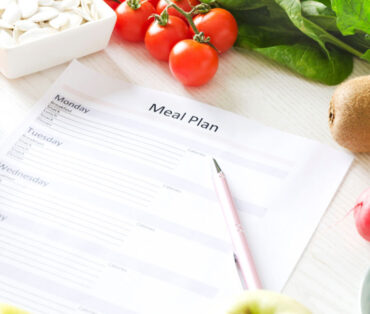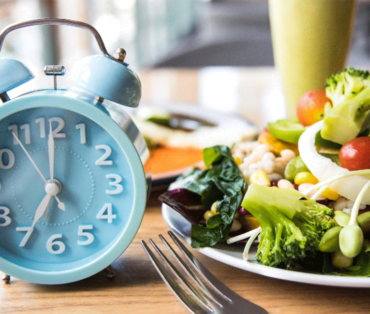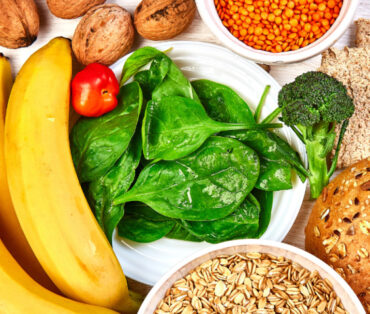How to Halt Emotional Eating
Have you ever felt so anxious over something that you found yourself crunching steadily through a party-size bag of chips? Has disappointment ever moved you to devour spoonful after spoonful of ice cream right out of the quart container? Do you sometimes feel that your only friend in the world is the box of brownies, cupcakes, or cookies on your kitchen counter? We eat to fill our bellies, but sometimes, we also eat to release the angst of anxiety, soothe the pang of sadness, or feed the hunger of loneliness. And these emotional reasons for eating can be the enemy when it comes to a weight loss eating plan.
Truth of the matter is, when emotion drives you to the candy drawer over and over again, day after day, you’re on the road to obesity and poor health. The secret to breaking free is to find strength in moments of weakness, to look to other support systems than food, and to turn away. For help in understanding emotional eating, how it derails a weight loss diet, and what to do about it, here are answers to some common questions:
Q: Why do we eat when we’re stressed or sad? Why don’t we just push out negative feelings with a hard, sweaty full body workout?
A: When we experience negative emotions like sadness or stress, we want to soothe ourselves, so we turn to comfort foods. A gym workout or other form of physical activity is a great way to de-stress mentally and physically, but many of us don’t think of it as soothing. You need to reframe it. Take a walk outdoors because it’s lovely. Go to Curves or access MyCurves On Demand for your whole body workout because it’s an opportunity to be with your friends. When you understand firsthand how activity eases anxiety and energizes a sad or tired mind, you’ll start choosing it over chocolate or another comfort food.
Q: Why don’t steamed broccoli or a bowl of fresh berries make the list of comfort foods?
A: We’re geared to be attracted to certain tastes, like sweetness. When we were primal, we had only berries and other fruits—the palatables. Now we have hyperpalatables—foods that are high in sugar, fat, salt. They have a pleasing texture. They’re soft and creamy, and when we eat them, our brains release the feel-good chemical dopamine. There’s a psychological play here, too. Ice cream, cookies, and cupcakes are the special treats or rewards our moms gave us when we were growing up, so there’s a boatload of memories associated with them. All of this elicits a positive response in the brain. We feel good. Stress is reduced. But it’s only temporary. When we reach the bottom of the cookie jar, we feel guilty about abandoning our healthy eating plan, and stress goes way back up again.
Q: How can we stop ourselves from overeating when we’re anxious or sad?
A: Try to HALT temptation. As you’re reaching for that bag of chips or quart of ice cream, stop and ask yourself, are you feeling hurt, anxious/angry, lonely, or tired? These are the usual culprits that spur emotional eating and sabotage us when it comes to a weight loss eating plan. If you answer yes, then halt! Choose anything other than food: Do something mindless, go for a walk, go to Curves, go to a movie (but bring only enough cash for your movie ticket, not for popcorn).
Q: And if we find ourselves turning to comfort foods regularly?
A: You’ve got to drill down to what’s really bothering you. Make a list of the stressors in your life. Usually that will give rise to the deeper problem. Then you need to figure out a strategy to deal with that problem. In the meantime, find and acknowledge healthy ways of handling stress. For example, notice how when you complete a full body workout or a Curves class, you feel good in your mind. It takes an integrated approach to achieve your fitness relationship goals.
Q: When is emotional eating a serious problem?
A: Ask yourself these two questions when food is in front of you:
- If I eat this, will I feel a loss of control?
- If I eat this, will I feel shame, blame, and guilt?
If your answer to either or both of these questions is “yes,” you’re hooked on the food or beverage in front of you and consuming it will only lead you to overeat or binge. Instead, substitute with a healthy snack, or a meal option if you’re truly hungry and it’s time for a meal or snack. And if you’re constantly feeling out of control, then you may wish to start a weight-loss diet and fitness program for women that can specifically help women with emotional eating, such as Curves Nutrition Program. With Curves Nutrition Program, you’ll get personalized weight loss motivation and support, so you can tackle your emotional eating triggers and move to a healthy eating plan and gym workout that supports you physically and mentally. Talk to your Curves Coach about signing up today!







